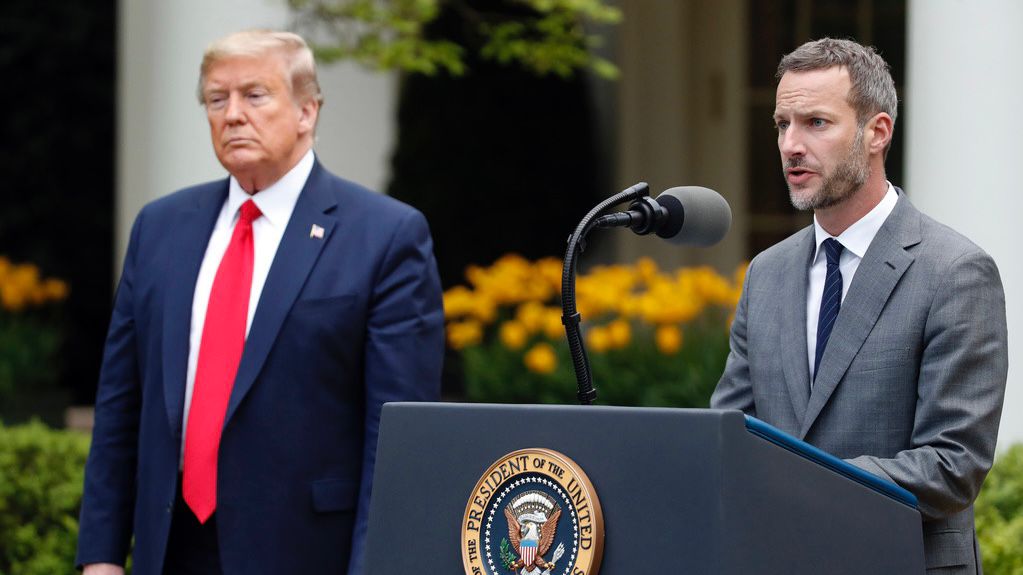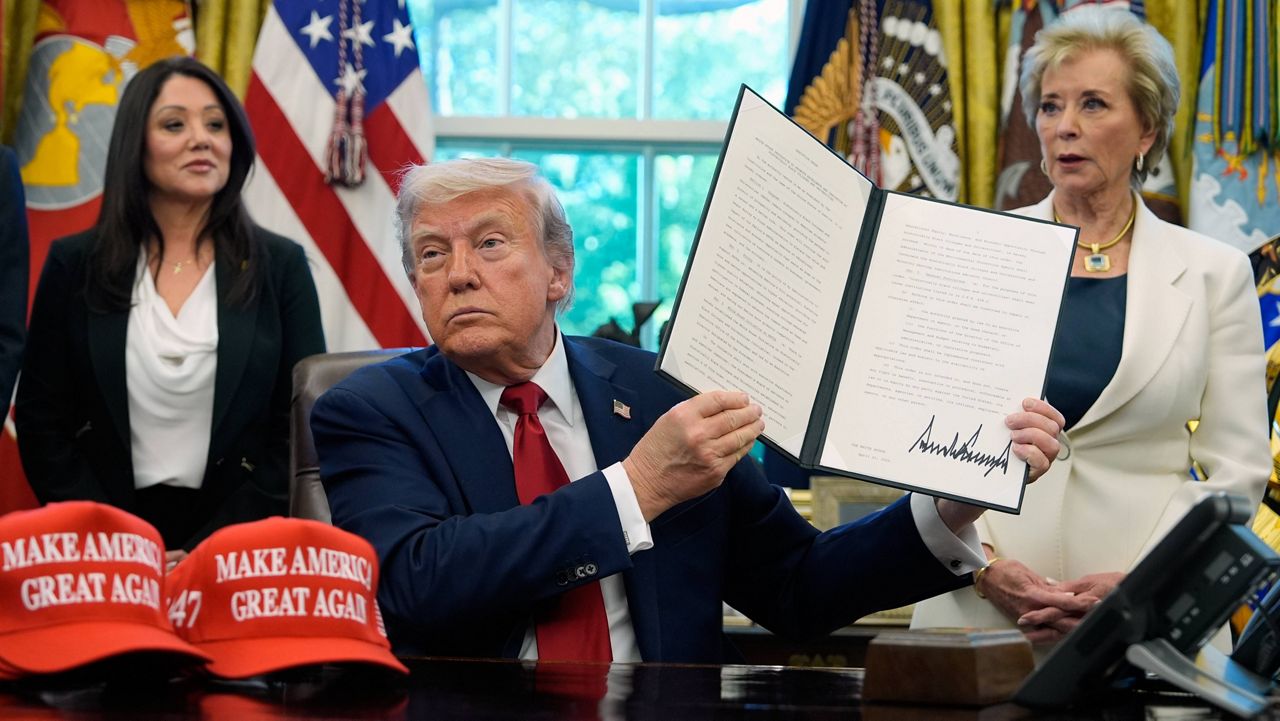Treasury Secretary Janet Yellen notified Congress on Monday that the U.S. could default on its debt as early as June 1, if the body does not raise or suspend its statutory borrowing authority before then.
In a letter to House and Senate leaders, Yellen urged congressional leaders “to protect the full faith and credit of the United States by acting as soon as possible” to address the $31.4 trillion limit on its legal borrowing authority, adding that it is impossible to predict with certainty the exact date of when the U.S. will run out of cash.
What You Need To Know
- Treasury Secretary Janet Yellen has notified Congress that the U.S. could default on its debt as early as June 1, if the body does not raise or suspend its statutory borrowing authority before then
- In a letter Monday to House and Senate leaders, Yellen urged Congressional leaders “to protect the full faith and credit of the United States by acting as soon as possible” to address the $31.4 trillion limit on its legal borrowing authority
- After Yellen's letter became public, President Joe Biden invited top congressional leaders to the White House to negotiate on May 9
- Treasury officials say the debate over the debt ceiling poses the greatest risk to the U.S. financial position
- Democrats and the White House are pushing for Congress to increase the federal debt limit. Biden wants the cap raised without negotiation. The House Republican majority has most recently passed a bill to secure spending cuts in exchange for a debt limit increase
“We have learned from past debt limit impasses that waiting until the last minute to suspend or increase the debt limit can cause serious harm to business and consumer confidence, raise short-term borrowing costs for taxpayers, and negatively impact the credit rating of the United States," she said in the letter.
After Yellen's announcement on Monday, President Joe Biden called House Speaker Kevin McCarthy, R-Calif., who is traveling in Israel right now, and invited him to a May 9 White House meeting with top congressional leaders — Senate Majority Leader Chuck Schumer, D-N.Y., Minority Leader Mitch McConnell, R-Ky., and House Democratic Leader Hakeem Jeffries, D-N.Y., — the White House said.
Democrats and the White House are pushing for Congress to increase the federal debt limit. Biden wants the cap raised without negotiation. The House Republican majority has most recently passed a bill to secure spending cuts in exchange for a debt limit increase.
In a statement, McCarthy accused the president of "threatening to bumble our nation into its first ever default — and the clock is ticking."
"After three months of the Biden administration's inaction, the House acted, and there is a bill sitting in the Senate as we speak that would put the risk of default to rest. The Senate and the President need to get to work — and soon," McCarthy said.
McCarthy accepted Biden's invitation, sources told Spectrum News' Cassie Semyon.
Majority Leader Schumer on Tuesday fast-tracked two bills to the Senate's calendar: The House GOP's bill, which he has branded the "Default on America" – or "DOA" – Act, and a "clean" debt limit increase which would suspend the country's borrowing power through the end of 2024.
"Rather than listened to reason, Speaker McCarthy has caved to extremists," Schumer charged in a speech on the Senate floor. "By passing the default on America act, he's handed the keys over to the House Freedom Caucus, many of whom are more than happy to let the U.S. default if they don't get every last cut."
Schumer maintained that the Republican-passed bill has no chance of passage in the Democratic-controlled Senate.
"Speaker McCarthy has created a situation where he knowingly passed an extreme bill, has been boxed by his Republican colleagues into a corner and now has little room to maneuver, lest he provok the ire of the House Freedom Caucus," the New York Democrat said. "McCarthy is giving us two terrible options: Either default on the debt, or default on our country, with steep severe devastating cuts to things like law enforcement, veterans, families, teachers, kids, even cancer research. The only real option that does not hurt the American people is a clean, bipartisan bill to avert default."
Also Monday, the Congressional Budget Office reported that it saw a greater risk of the U.S. running out of funds in early June. CBO Director Phillip L. Swagel said because of less-than-expected tax receipts this filing season and a faster IRS having processed already received returns, “Treasury’s extraordinary measures will be exhausted sooner than we previously projected.”
In January, Yellen sent a letter to congressional leaders, stating that her department had begun resorting to “extraordinary measures” to avoid a federal government default.
The Treasury said Monday it plans to increase its borrowing during the April to June quarter of this year, even as the federal government is close to breaching the debt limit.
The U.S. plans to borrow $726 billion during the quarter. That’s $449 billion more than projected in January, due to a lower beginning-of-quarter cash balance and projections of lower-than-expected income tax receipts and higher spending.
While Russia's invasion of Ukraine remains a burden on U.S. economic growth, Treasury officials say the debate over the debt ceiling poses the greatest risk to the U.S. financial position.
Eric Van Nostrand, acting assistant secretary for economy policy, said in a statement that “even if Congress ultimately raises the debt limit before a default occurs, the ensuing uncertainty could raise borrowing costs and induce other financial stress that would weaken our labor market and our standing in the world."
“There is no time to waste,” said Shai Akabas, director of economic policy at the Bipartisan Policy Center, which forecasts the so-called X-date when the government exhausts its extraordinary measures. His organization will also provide an updated X-date projection in the coming days, he says.
“The U.S. government is again within mere months or even weeks of failing to make good on all its obligations. That is not a position befitting of a country considered the bedrock of the financial system, and only adds uncertainty to an already shaky economy.”
Yellen said last week, at the Cap-to-Cap policy conference in Washington that “Congress must vote to raise or suspend the debt limit, and it should do so without conditions and it should not wait until the last minute. I believe that is a basic responsibility of our nation’s leaders to get this done.”







_crop)

